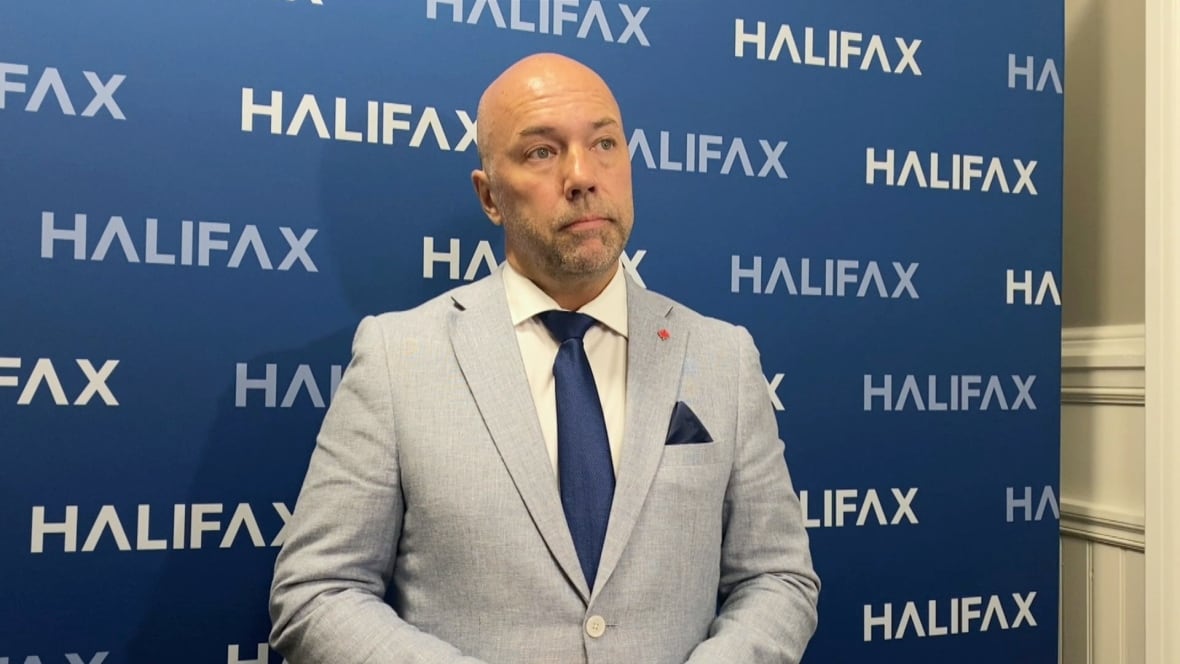What strong mayor powers could mean for N.S. government and why they might be granted
Province, HRM Mayor Andy Fillmore have discussed idea of increased powers

Halifax Regional Municipality Mayor Andy Fillmore continued his lobbying to gain expanded power in a letter late last month to Municipal Affairs Minister John Lohr.
The letter, obtained by CBC News, comes as some provincial officials and Fillmore have raised the idea of strong mayor powers. Among other things, those powers could give the mayor of the capital city the ability to hire and fire staff and to override situations where the mayor's vote would otherwise be in the minority at council.
In his letter, Fillmore writes that a "disconnection between democratic choice at the ballot box and decision-making at city hall" is hindering his ability to deliver on campaign promises. As an example, he says he asked for a draft budget that would hold the tax rate flat, yet staff presented council a document during budget deliberations that proposed a 7.6 per cent increase in tax bills.
"This is a problem which is rooted in Halifax's governance model," Fillmore writes, neglecting to mention that council was able to eventually land on a lower number, which included freezing the tax rate.
-
Halifax councillors decry 'misinformation' from mayor, saying it undermines public trust
-
Halifax mayor says 'change is needed' at city hall, would welcome strong mayor powers
In Nova Scotia, a mayor acts — sort of — as a chair of an elected board, with one vote just like every other member around the table.
Cape Breton University political scientist Tom Urbaniak says the governance model used here is the same as most of the rest of Canada, with the exception of Ontario, where Premier Doug Ford has made strong mayor powers available for about 170 municipalities in recent years.

Even in those cases, however, it was not pursued by municipal officials the way it has been in recent months by Fillmore, according to Urbaniak.
"I'm actually surprised by the extent to which Mayor Fillmore has insisted on these powers," Urbaniak said in a recent interview.
Fillmore's overt pursuit of strong mayor powers risks creating the perception that he's incapable of advancing an agenda and building consensus around the council table without the intervention of the provincial government, said Urbaniak.
"That's not the experience of other mayors across the country, who usually did not demand these powers and in many cases were able to drive an agenda."
Indeed, Lohr confirmed earlier this year that he offered similar powers to Fillmore's predecessor, Mike Savage, and Savage turned down the offer.
Premier Tim Houston mused recently about passing legislation to create strong mayor powers in part because of his frustration with a decision by HRM council to make Morris Street a one-way street, which would also accommodate a bike lane.
Speaking to reporters last month, Houston said that decision, which Fillmore opposed, would not help address concerns about traffic congestion, and the premier thought councillors were out of touch with the needs and wants of the people they represent.
But that's not a situation where strong mayor powers would even be necessary to make a change.
Houston's government passed legislation earlier this year giving itself the power to override any municipal decision related to transportation. The premier has subsequently given HRM council a deadline of this week to reverse the Morris Street decision or the Progressive Conservatives will flex their new powers and do it for them.

Urbaniak said one issue with strong mayor powers — and the reason some jurisdictions moved away from it in the past — is the risk of outsized influence in the operations of the city by one person, with no mechanism for having their power checked outside of elections.
That's less accountability than what's in place for premiers or the prime minister.
Although Houston has a supermajority that allows his government to comfortably advance its agenda, that's only secure as long as Houston has the confidence of the Nova Scotia legislature. While he's unlikely to lose it, if something were to happen to create a division in his caucus an election could be forced.
Despite a growing leader-centric political culture in Canada, you only need look at the recent example of Justin Trudeau and the federal Liberals to see how much power a caucus actually has when they choose to exercise it.
That's not the case in a strong mayor situation.
Political calculus for the province
Urbaniak says the political calculus for Houston when it comes to strong mayor powers is based on a public frustrated with things such as traffic congestion and housing challenges, both difficult problems to solve.
The province has tools to work on those issues — Houston's government ordered but has not yet released a study looking at how to address congestion in the city — but the fixes are not fast, said Urbaniak.
Creating strong mayor powers can make the premier appear decisive and "allows the province to create this impression that if the problem still persists it's on the municipality or it's on the mayor, and it's not on us as the province," said Urbaniak.
But there are risks to that for Houston.
His government already has that recently created power over essentially all municipal transportation decisions. And during their first mandate, the Progressive Conservatives all but assumed control of planning in HRM.
Overriding the way municipal government functions — without ever having put it to the public first — would further tie Houston's government to HRM and its operations, and by extension the responsibility for the results.

